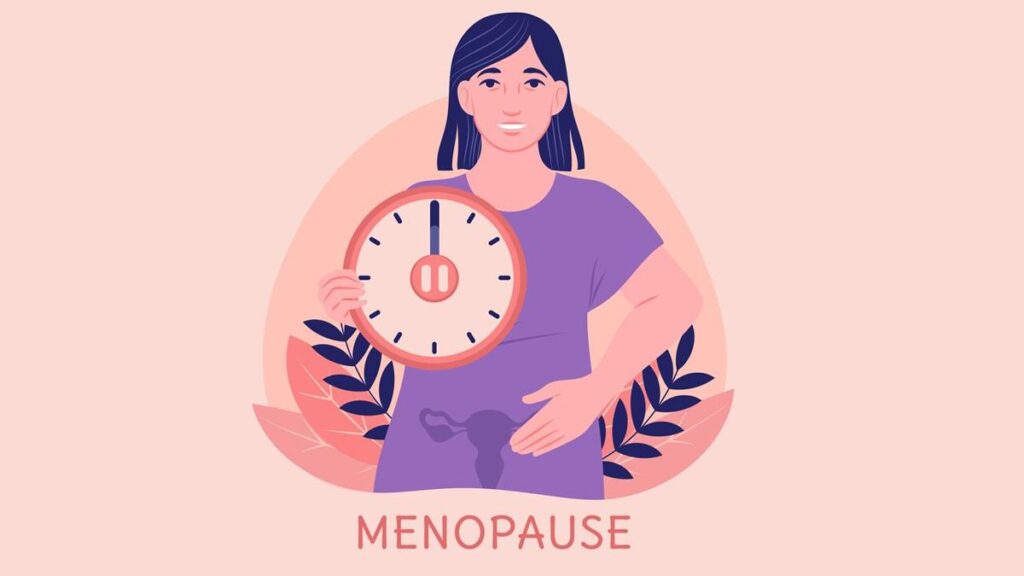Menopause marks a significant transition in a woman’s life, often accompanied by a myriad of physical and emotional changes. Among these shifts, energy fluctuations can profoundly impact daily routines, relationships, and overall well-being. As hormone levels fluctuate, women may experience periods of fatigue, irritability, or unexpected bursts of energy, creating a rollercoaster of emotions. Understanding these changes is crucial for effectively navigating this phase and reclaiming a sense of balance. In this article, we will delve into the science behind menopause and explore practical strategies to manage energy levels, helping women embrace this life stage with confidence and clarity. Whether you’re experiencing menopause yourself or supporting someone who is, gaining insights into these fluctuations can lead to more informed choices and improved quality of life. Let’s take a closer look at how to harness energy during this transformative time.
Table of Contents
- Navigating Hormonal Changes and Their Impact on Energy Levels
- recognizing Symptoms: Identifying Energy Fluctuations During Menopause
- Lifestyle Adjustments for Sustainable Energy Management
- Natural remedies and Supplements to Support Energy Balance
- In Retrospect
Navigating hormonal Changes and Their Impact on Energy Levels
Hormonal changes during menopause can considerably influence energy levels, often leading to feelings of fatigue or unexpected bursts of energy.As estrogen and progesterone levels fluctuate, individuals may experience a variety of symptoms that impact their daily life. Understanding these changes is essential for managing energy effectively. Some common factors include:
- Sleep disturbances: Night sweats and anxiety may disrupt sleep, contributing to daytime fatigue.
- Metabolism shifts: A slowing metabolism can make it easier to gain weight, which may lead to reduced stamina.
- Mood fluctuations: Emotional changes can also sap energy, making daily tasks feel more challenging.
To navigate these challenges, it’s important to adopt strategies that promote energy stability.Incorporating regular physical activity, such as walking or yoga, helps improve mood and energy levels by boosting endorphins. Additionally, a balanced diet rich in whole grains, fruits, and vegetables can optimize nutrient intake, supporting overall health during this transition. Other effective practices include:
- Staying hydrated: Dehydration can cause fatigue; aim for adequate water intake throughout the day.
- Practicing stress management: Techniques like meditation or deep-breathing exercises can mitigate anxiety and improve sleep quality.
- Seeking support: Engaging with support groups or healthcare providers can provide valuable insights and encouragement.
Recognizing Symptoms: Identifying Energy Fluctuations During Menopause
As women transition through menopause, they may notice significant changes in their energy levels that can be both puzzling and exhausting. Understanding these fluctuations can empower you to take proactive steps. Common symptoms during this phase include:
- Chronic fatigue: A persistent sense of tiredness, regardless of how much sleep you get.
- Sudden bursts of energy: Experiencing unexpected surges that can lead to restlessness.
- Sleep disturbances: Insomnia or frequent awakenings interrupting your rest.
- Mood swings: Emotional upheavals that can drain energy and create feelings of anxiety.
Recognizing these signs is crucial for managing daily life effectively. Its essential to pay attention to when you feel most exhausted and when you experience energy spikes. Keeping a symptom diary can be incredibly beneficial, allowing you to correlate your energy levels with lifestyle factors such as:
- Diet choices: Monitoring how different foods impact your energy.
- Physical activity: Assessing the relationship between exercise and your energy levels.
- Stress management: Identifying triggers that deplete your energy reserves.
Lifestyle Adjustments for sustainable Energy Management
Managing energy levels during menopause requires a mindful approach to daily living. To foster a balanced energy flow, consider these strategies:
- Prioritize Sleep: Aim for 7-9 hours of quality sleep each night. Create a soothing bedtime routine that encourages relaxation.
- Stay Hydrated: Drinking plenty of water throughout the day helps combat fatigue and supports overall health.
- Mindful Nutrition: Focus on whole foods rich in nutrients.Incorporate fruits, vegetables, whole grains, and healthy fats to stabilize energy levels.
Incorporating physical activity into your routine can also be beneficial. Make these adjustments:
- regular Exercise: Engage in a mix of aerobic and strength-training activities to boost energy and improve mood.
- Practise Stress Management: Activities like yoga, meditation, or deep-breathing exercises can lower stress, which may enhance energy.
- Stay Social: Connecting with friends or family can uplift your spirits and renew your energy, making socializing a key part of your routine.
Natural Remedies and Supplements to Support Energy Balance
Many women experience significant changes in energy levels during menopause, making it crucial to explore options for maintaining balance. Natural remedies like ashwagandha and Rhodiola rosea have been noted for their adaptogenic properties, helping the body cope with stress and fatigue. Additionally, incorporating ginseng into your routine may boost stamina and enhance overall vitality. Regular use of these herbs can support the endocrine system, potentially leading to a more stable energy experience.
Supplementation can also play a vital role in energy management. Consider adding the following to your daily regime:
- Omega-3 fatty acids: Known to support brain function and mitigate mood swings.
- B vitamins: Essential for energy production and can combat fatigue.
- Magnesium: Helps in muscle function and can reduce tiredness.
When integrated thoughtfully, these natural solutions can contribute to a more balanced energy state, empowering women to navigate the complexities of menopause with greater ease.
In Retrospect
As we wrap up our exploration of menopause and the often-challenging energy fluctuations that accompany it,it’s clear that this transition,while significant,doesn’t have to be overwhelming.Gaining a solid understanding of what to expect, along with proactive strategies for managing your energy levels, can empower you during this pivotal time in your life.
From dietary adjustments and exercise to mindfulness techniques and open discussions with healthcare providers, there are numerous avenues to explore as you strive to find balance and maintain your vitality. Remember,every woman’s experience is unique,and it’s essential to listen to your body and consult professionals who can guide you.
You are not alone in this journey. By fostering a community and sharing our experiences, we can navigate the complexities of menopause together, supporting one another in reclaiming our energy and well-being. Here’s to embracing this chapter with resilience and grace!







